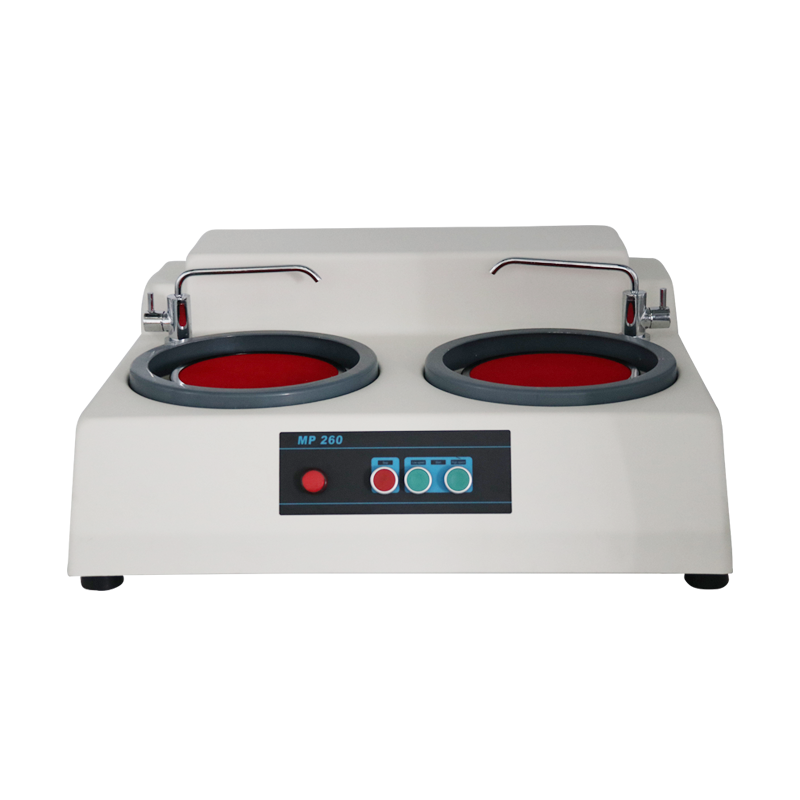
The aerospace industry is constantly evolving, with an insatiable demand for high - performance materials. These materials must withstand extreme conditions, such as high temperatures, high pressures, and intense mechanical stress. For example, the aviation engine, the heart of an aircraft, requires materials that can maintain their structural integrity and performance under these harsh environments. In fact, studies show that up to 70% of the performance improvement in modern aviation engines can be attributed to the development and application of new materials.
This is where metallographic analysis equipment comes into play. It has become an indispensable tool in the aerospace industry, providing a deep understanding of the microstructure of materials, which is crucial for material research, development, and quality control.
Metallographic analysis equipment operates on the principle of observing and analyzing the microstructure of metals and alloys. By using techniques such as optical microscopy, electron microscopy, and X - ray diffraction, it can reveal the grain size, phase composition, and defect distribution of materials.
The functions of this equipment are diverse. It can help researchers develop new materials by studying the relationship between microstructure and material properties. It also plays a key role in optimizing manufacturing processes. For instance, by analyzing the microstructure of parts at different stages of production, manufacturers can adjust parameters such as heat treatment temperature and time to improve the quality and performance of products. Some advanced metallographic analysis equipment is equipped with high - definition cameras, ISO - certified microscopes, and high - resolution cameras, which can provide clear and accurate images for analysis.
Aero - engine blades are one of the most critical components in aviation engines. Their performance directly affects the safety and efficiency of the entire engine. Metallographic analysis equipment has numerous applications in the manufacturing process of these blades.
During the material selection stage, the equipment can help engineers analyze the microstructure of different candidate materials. By comparing the grain size, phase distribution, and defect density, they can choose the most suitable material for blade manufacturing. In the manufacturing process, it can monitor the quality of blades. For example, after heat treatment, the equipment can detect whether the blade has achieved the desired microstructure. Any abnormal grain growth or phase transformation can be identified in time, allowing manufacturers to take corrective actions.

### Material Innovation
Metallographic analysis equipment provides in - depth insights into the microstructure of materials, which is the foundation for material innovation. By understanding how different microstructures affect material properties, researchers can develop new alloys with better performance, such as higher strength, better heat resistance, and improved corrosion resistance.
### Quality Inspection
It plays a vital role in quality inspection. By detecting defects such as cracks, porosity, and non - uniform grain distribution in materials and parts, it ensures that only high - quality products enter the market. This reduces the risk of product failure and improves the reliability of aerospace products.
### Safety Assurance
In the aerospace industry, safety is of the utmost importance. Metallographic analysis equipment helps to ensure the safety of aerospace vehicles by guaranteeing the quality of materials and parts. By preventing potential failures caused by material defects, it protects the lives of passengers and crew members.
Metallographic analysis equipment has become an essential part of the aerospace industry. It provides aerospace enterprises with a competitive edge by enabling them to develop high - performance materials, optimize manufacturing processes, and ensure product quality. In the future, as the aerospace industry continues to develop, the demand for more advanced metallographic analysis equipment will only increase.
With the development of new materials such as composites and nanomaterials, metallographic analysis equipment will need to be continuously upgraded to meet the new challenges. It will also play a more important role in the research and development of next - generation aerospace engines and spacecraft.
If you are an aerospace enterprise looking for reliable metallographic analysis equipment to enhance your competitiveness and ensure sustainable development, don't hesitate to contact us. Our professional team is ready to provide you with the best solutions!